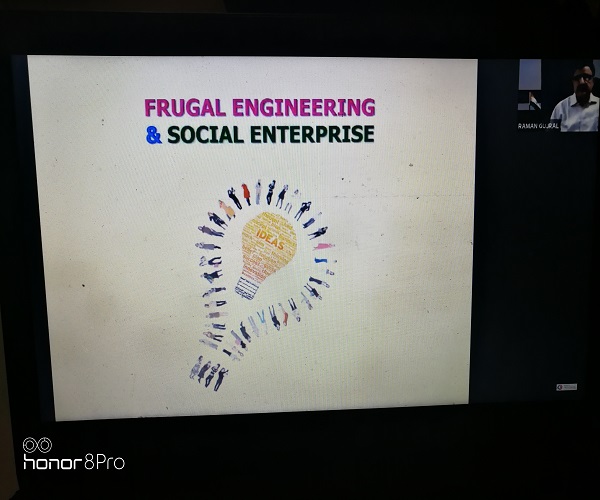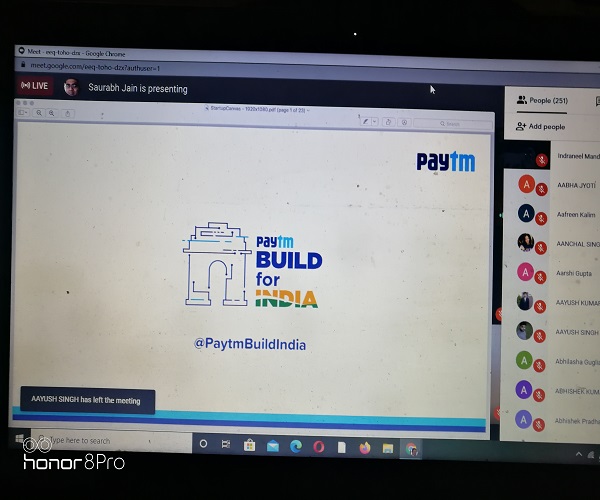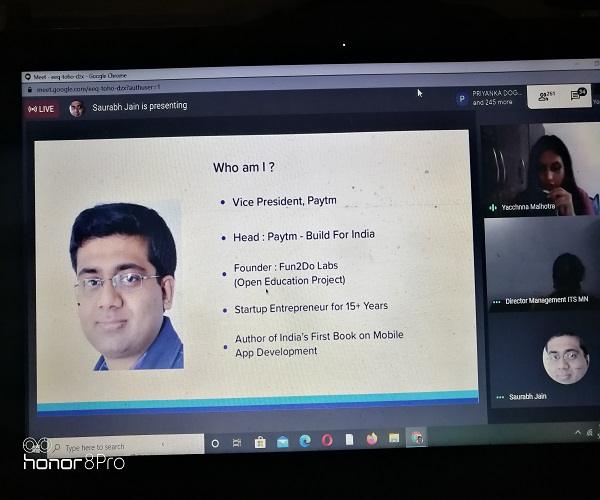Latest Updates
On the 21st of May, 2020, Mr. Saurabh Jain, VP, Paytm, spent some time in an hour long session with the students and faculty members of the ITS Group of institutions. The idea was to share his startup experiences as part of Paytm and also from his own entrepreneurial journey, as a means of guiding any budding entrepreneurs.




Mr. Jain started by mentioning that entrepreneurs mostly take the road less travelled, and as such, solve those problems which are not taken up by others. He gave the example of companies like Microsoft and Apple which were founded during the recessionary market in the US, and yet went on to become strong players which defined an industry. He cautioned that it was not easy to be an entrepreneur, yet anybody can take up this vocation.
Clarifying that the startup culture is all about following a passion, he frequently gave the example of Mr. Vijay Shankar Sharma, the founder of Paytm, and the things that he himself had learnt from this long term association. He referred to how the small town background of Mr. Sharma had helped him grasp the needs of the common man in India, which ultimately contributed to the success of Paytm as it went about setting up its digital payment interface.
Mr. Jain mentioned how anxiety filled the work of an entrepreneur which is filled with uncertainties and risks at every corner. He interestingly classified startups into three groups – winner takes all, lifestyle and social, providing examples of each type. He also enlightened the students about the eight types of intelligence, clarifying that three of these viz., - inter, intra and naturalistic – were crucial for entrepreneurial risk.
The main part of Mr. Jain’s lecture concentrated on what he described as the Startup Canvas – the nine step guide to success in the entrepreneurial universe. He delineated these on the basis of three focus areas, i.e., - product, people and purchasing power – compared against the three organizational growth stages – search, build and scale. Interspersed amidst all this were critical elements like the product-market fit; the organization – comprising of the founders, the core team and the major functional areas; and the enabling processes and people, like bootstrapping, angel investors and venture capitalists. While the actual process was easier said than done, Mr. Jain’s lucid examples from his own knowledge and experience made the issue most approachable for all concerned.
The myriad examples offered by Mr. Jain had the effect of greatly inspiring the students, many of whom appeared intent on exploring the world of startups. The constant stream of questions from the youngsters almost right from the beginning demonstrated not just their excitement about the theme, but were also a proof of Mr. Jain’s hold on the topic as well as his convincing arguments. All in all, it was a very fruitful session for one and all.

